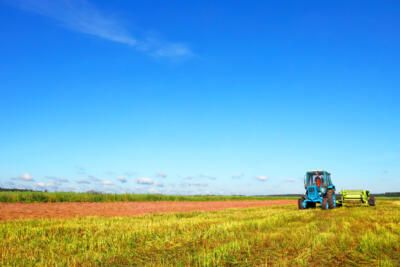A Name for Insights from Cut up and Non-Licensed Operations
Our mission at OFRF is to “foster the advance and widespread adoption of natural farming techniques.” Natural certification has lengthy been celebrated for its advantages to a wide range of ecological and social techniques; however we all know that these advantages are usually not restricted to completely licensed natural farms. We perceive that for a wide range of causes an operation will solely have a portion of their land licensed, or presumably forego certification totally, however nonetheless function as an organically-managed system. For these of you who handle operations like this, you’ve gotten a novel perspective to look at and evaluate the impacts of natural practices throughout several types of land administration techniques.
We wish to hear from producers such as you about your relationship with and utilization of natural agriculture analysis. Analysis targeted solely on typical or chemical-based agriculture typically can’t be utilized to natural techniques as a result of it depends on inputs which can be prohibited in natural farming. Nonetheless, the alternative just isn’t true: many natural practices will be helpful for typical farming operations as nicely. By understanding how cut up operations make the most of natural rules, we are able to strengthen the case for elevated funding in natural agriculture analysis that serves the complete agricultural group.

There are insights to achieve from each cut up and non-certified natural operations about the advantages of natural.
Cut up Operations and the Potential of Natural Agricultural Methods
Cut up operations, the place some fields are licensed natural and others are managed utilizing typical chemistry- and genetic-based agricultural techniques, present a possibility to supply helpful insights into the real-world software and advantages of natural farming practices and techniques of administration. This twin method is a ripe alternative for the commentary of the results of natural rules, equivalent to cowl cropping, complicated crop rotations, decreased chemistry-dependance, and built-in pest administration on their non-certified land.
We’re keen to listen to your experiences and outcomes from greedy this chance! The potential for more healthy soils, elevated resiliency of ecosystems, and even decreased enter/gas/labor prices is actual.
Assist Us Perceive the Broader Impacts of Natural Analysis
Do you use a cut up or non-certified operation that makes use of natural rules and techniques? Have you learnt somebody who does? We’re attempting to listen to from these operations to higher perceive how they could be utilizing natural analysis of their resolution making. Their experiences might help us higher perceive how natural agriculture analysis advantages the complete agricultural system, not simply licensed natural producers.
Quantitative evaluation already reveals that natural analysis advantages all of agriculture by creating strategies that may enhance soil well being, improve biodiversity, cut back enter prices, and improve resilience in opposition to local weather change. These advantages are usually not unique to licensed natural farms—they’re helpful to all farmers who’re on the lookout for sustainable, long-term options. Now we want your tales to make the qualitative factors that illustrate these advantages!
Your Story Issues
Repeatedly, we hear in Washington that appropriators are hesitant to extend budgets for natural analysis programming as a result of it’s seen as too “area of interest” or doesn’t apply to all agricultural operations. For those who or somebody you understand has a narrative to inform on this matter, it will likely be an important piece in serving to us display the significance of natural agriculture analysis for the broader agricultural panorama.
Let’s work collectively to make sure that the advantages of natural agriculture are totally understood and leveraged for the great of all farming techniques! Please attain out at gordon@ofrf.org.
Eat nicely and breathe deeply,
Gordon


